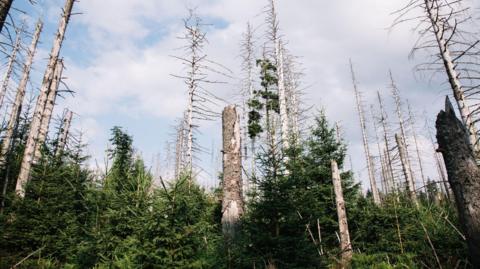Scientists say there has been an alarming lack of progress in saving nature as the UN biodiversity summit, COP 16, draws to a close.
The scale of political ambition has not risen to the challenge of reducing the destruction of nature that costs the economy billions, said one leading expert.
Representatives of 196 countries have been meeting in Cali, Colombia, to agree on how to halt nature decline by 2030.
The biodiversity summit is separate from the more well-known COP climate summit, which is set to take place in Baku later this month.
Countries were meant to come to the table with a detailed plan on how they intended to meet biodiversity targets at home, but most missed the deadline.


